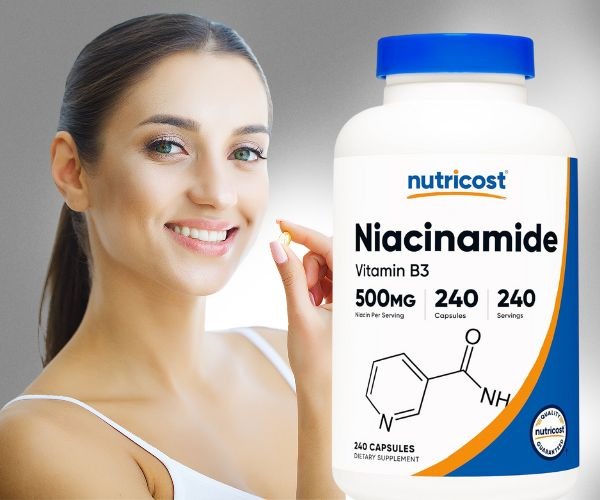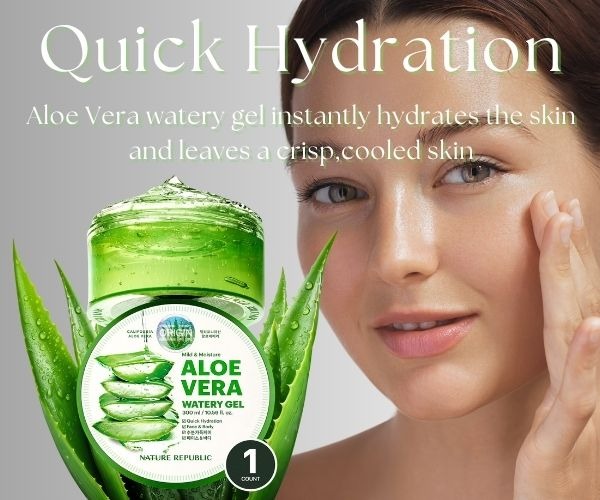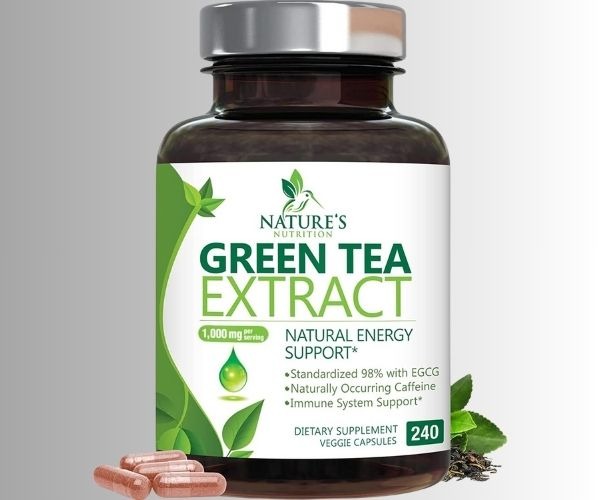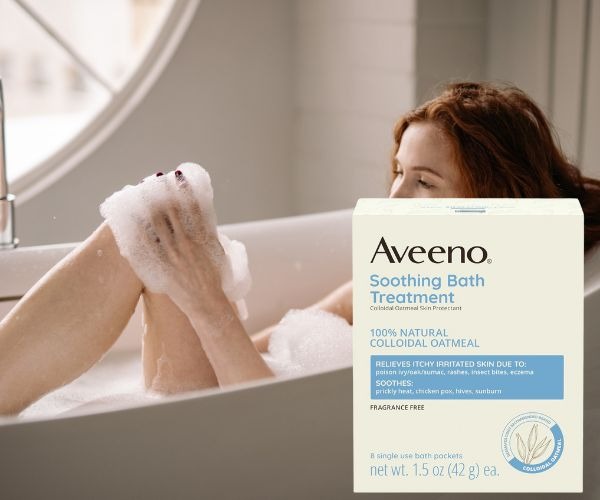Best Skincare Ingredients That Reduce Inflammation for Women
Looking for skincare ingredients that reduce inflammation? Explore proven options for women to soothe redness, nourish skin, and boost daily confidence.
WOMEN'S BEAUTY HEALTH
Shari Smith
6/12/202511 min read
As an Amazon affiliate, we earn commissions at no extra cost to you if you click our links and make a purchase.


Red, irritated skin is never fun—especially when it keeps coming back. Inflammation is a common problem in women's skincare, whether it shows up as sensitivity, swelling, or stubborn breakouts.
Many factors can trigger it, from stress to harsh weather or the wrong products.
If you want calmer, clearer skin, knowing which skincare ingredients that reduce inflammation actually work makes a big difference.
This guide covers the top ingredients that help soothe, refresh, and protect your skin every day.
Understanding Skin Inflammation
Dealing with skin that flares up, stings, or turns blotchy is a headache many women share.
Inflammation doesn’t just look uncomfortable—it often feels that way too.
Knowing what causes these flare-ups, how they show up on your skin, and why soothing skincare ingredients matter can help you find relief and confidence every day.
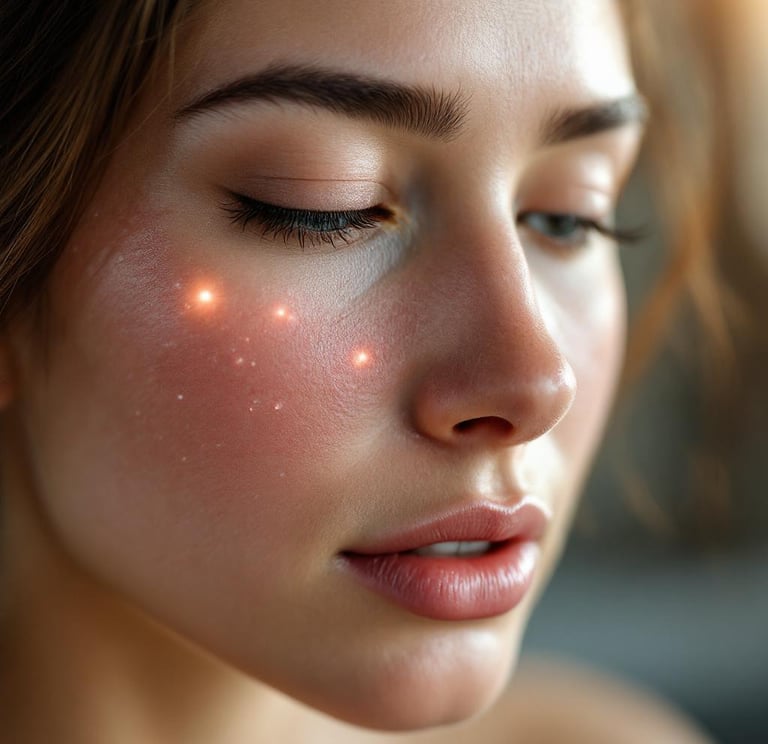

What Is Skin Inflammation?
Skin inflammation is your body’s natural response to something it sees as a threat.
Think of it as your skin’s built-in alarm system, kicking in to protect against things like bacteria, pollution, or physical injury.
Sometimes, though, your skin overreacts or stays on high alert, which leads to ongoing redness and irritation.
In simple terms, when your skin gets inflamed, it’s usually because something is bothering or hurting it, and this reaction is how your body tries to fix things.
Common Triggers for Women
For women, the list of what can set off skin inflammation is long. Everyday habits, environmental stress, and even life stages make a difference.
Here are some common triggers:
Harsh skincare products: Ingredients like alcohol and strong acids can strip the skin’s natural barrier.
Hormonal changes: Fluctuations during the menstrual cycle, pregnancy, or menopause can make skin more sensitive.
Weather extremes: Cold winds or hot sun can leave your skin dry and irritated.
Stress: Emotional stress messes with skin’s balance and can prompt flare-ups.
Diet: Spicy foods, excessive sugar, and lack of hydration may worsen inflammation.
Allergies or sensitivities: Fragrances, dyes, or preservatives in personal care products might cause reactions.
Recognizing your personal triggers is the first step toward prevention and faster soothing.
Visible Signs and Symptoms
You can spot inflammation even before you feel it.
Here are typical signs women notice:
Redness: Patches or all-over redness that won’t go away.
Swelling: Puffiness, especially around eyes or cheeks.
Tenderness: Skin that hurts when touched or brushed.
Rash or bumps: Rough patches, bumps, or an itchy rash.
Breakouts: Pimples or pustules as a reaction.
Inflamed skin looks upset and often feels tight, raw, or extra sensitive. Ignoring these signals can lead to longer recovery times and lasting marks.
Why Soothing Ingredients Matter
When your skin is inflamed, soothing ingredients are like a cold compress for your face.
The right skincare ingredients that reduce inflammation help quiet the skin’s reaction, speed up healing, and restore comfort.
They work by calming irritation, supporting the skin barrier, and fighting further flare-ups.
Choosing products packed with gentle, calming ingredients does more than just target symptoms.
It builds up your skin’s resilience, making it less likely to overreact in the future and helping you get back to clear, healthy skin faster.
Think of these soothing ingredients as your skin’s first aid kit: gentle, effective, and always ready when your skin needs a break.
Top Skincare Ingredients that Reduce Inflammation
If you want to calm red, aggravated skin, the right skincare ingredients that reduce inflammation can change everything.
Let’s take a closer look at the most effective picks backed by science and loved by dermatologists.
Each one brings its own soothing power, making it easier to find comfort and see results in your daily routine.
Niacinamide (Vitamin B3): Calm and Strengthen
Niacinamide is a standout choice for women struggling with sensitive or irritated skin.
This form of vitamin B3 does more than just reduce redness.
It strengthens your skin’s barrier, which acts like your body’s natural shield against triggers and outside stress.
Fewer breakouts, less swelling, and smoother overall tone are just some of the rewards.
Recent studies show niacinamide lowers inflammatory markers in the skin. In plain English, it helps block the molecules that cause redness and swelling.
Testing also shows it reduces blotchiness and irritation, making it a favorite for calming flare-ups and even fading stubborn discoloration left by acne.
A few of niacinamide’s proven anti-inflammatory benefits:
Reduces redness linked to eczema, rosacea, and acne
Speeds up skin barrier repair after irritation
Softens rough patches and improves skin texture
Sprinkle a serum or moisturizer with niacinamide into your routine, and soon your skin will feel less reactive, balanced, and more even-toned.
Aloe Vera: Nature’s Soothing Gel
Aloe vera has been used for centuries to take the sting out of everything from sunburn to razor bumps.
When you swipe on pure aloe or a product containing this leaf gel, you get instant cooling relief. But there’s more to aloe than comfort.
It helps dial down swelling, decrease itching, and speed up repair for stressed-out skin.
Why is it a go-to for so many? Aloe vera is packed with plant sugars, amino acids, and vitamins that work together to support your skin’s healing process.
The gel’s soothing touch calms nerve endings and brings down puffiness. That’s why it pops up in after-sun lotions, anti-redness masks, and gentle cleansers.
For women managing sensitive skin or frequent irritation, aloe’s blend of hydration and inflammation-busting power makes it worth keeping on hand.
Green Tea Extract: Antioxidant Shield
Green tea is more than just a drink—it’s also one of the most promising skincare ingredients that reduce inflammation.
The magic lies in its high levels of polyphenols (like EGCG), which are powerful antioxidants.
These natural compounds help shut down the processes that set off redness, swelling, and skin sensitivities.
Green tea extract goes to work by:
Neutralizing free radicals that trigger inflammation
Reducing redness from sun exposure or irritation
Protecting skin cells and supporting healing
Research shows that regular use of products with green tea extract can calm rosacea flare-ups and reduce overall sensitivity. It’s a gentle option that works for even the most reactive skin types.
Centella Asiatica (Cica): The Skin Healer
Centella asiatica, often called "cica" on labels, is a herbal remedy that does wonders for inflamed or weak skin.
Rich in compounds called triterpenoids, cica helps tame swelling, bring down redness, and encourage skin repair.
Studies show it speeds up healing and increases collagen production, making skin more resilient over time.
Dermatologists often recommend cica for:
Healing minor wounds or blemishes
Soothing eczema, psoriasis, or irritation from strong products
Reducing scarring after acne or rashes
Adding cica to your routine is simple.
Use a moisturizer, gel, or sheet mask with this key ingredient, especially after exfoliating or if your skin feels sore or compromised.
Many women find that daily use of cica brings visible calm within days and keeps inflammation in check for the long term.

Why You Need Centella for Your SKIN 4 Reasons to Use Centella Asiatica
by Dr. Arsalan Aspires
Watch Video...
Colloidal Oatmeal: Protective Comfort
Colloidal oatmeal is a finely ground oat powder that forms a protective layer on the skin, locking in moisture and shielding against irritation.
It’s a classic remedy for itchy, red skin, and you’ll find it in everything from soothing creams to bath soaks.
But why does it work so well?
Oats contain antioxidants and beta-glucans that help restore a normal skin barrier and block the release of substances that cause inflammation.
This helps skin feel softer and stop the endless cycle of itching and scratching.
Colloidal oatmeal is especially helpful for:
Relieving atopic dermatitis (eczema) symptoms
Easing dry, scaly, or peeling skin after irritation
Supporting long-term moisture balance for sensitive skin
Women with easily irritated, allergy-prone, or dry skin often see quick relief once they add products rich in colloidal oatmeal to their routine.
It’s gentle enough for daily use and trusted for all ages.
How to Choose and Use Anti-Inflammatory Skincare Products
Women have more choices than ever for skincare products, but that doesn't make picking the right one for sensitive or reactive skin any easier.
With long ingredient lists and bold promises, it’s easy to feel lost in the skin-care aisle. The right products packed with skincare ingredients that reduce inflammation can calm your skin and protect it from daily triggers.
Let’s break down how to pick and use these soothers with confidence.
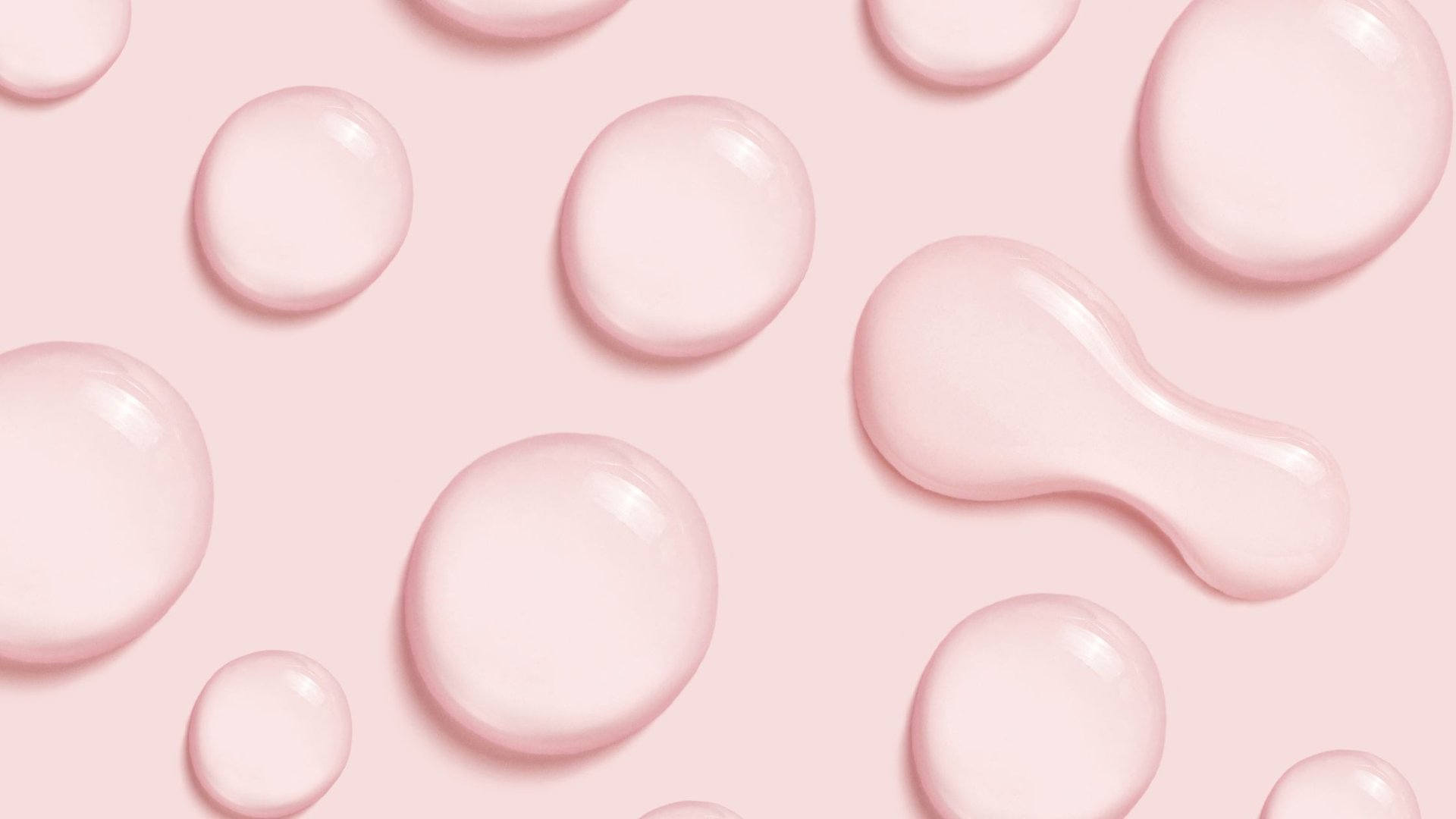
Reading Ingredient Labels Like a Pro
Not all "soothing" skincare is created equal. Brands often use trending words, but what's inside the bottle is what truly matters.
Here’s how to scan ingredient lists for the good stuff:
Look for proven soothers: Ingredients like niacinamide, aloe vera, green tea extract, cica (Centella asiatica), and colloidal oatmeal should be near the top of the list, meaning they’re in higher amounts.
Skip the irritants: Avoid products with added fragrance, strong alcohols (ethanol, denatured alcohol), and harsh physical exfoliants. These can undo the benefits of calming ingredients.
Check for less-is-more formulas: Fewer ingredients often mean fewer chances for flare-ups. Simple formulas help sensitive skin breathe and heal.
A quick scan for both hero ingredients and hidden triggers can help you pick products that truly support your skin.
The Importance of Patch Testing
Excited about a new serum? Don’t go all in without a patch test.
This small safety step keeps you from turning a soothing routine into a week-long rash.
Apply a pea-sized amount of product to your inner arm or behind your ear.
Wait 24-48 hours for any signs of redness, bumps, or itchiness.
No reaction? Go ahead and add it to your routine. If something feels off, try another product instead.
Patch testing takes a bit of patience, but skipping it is like driving a new car without checking the brakes.
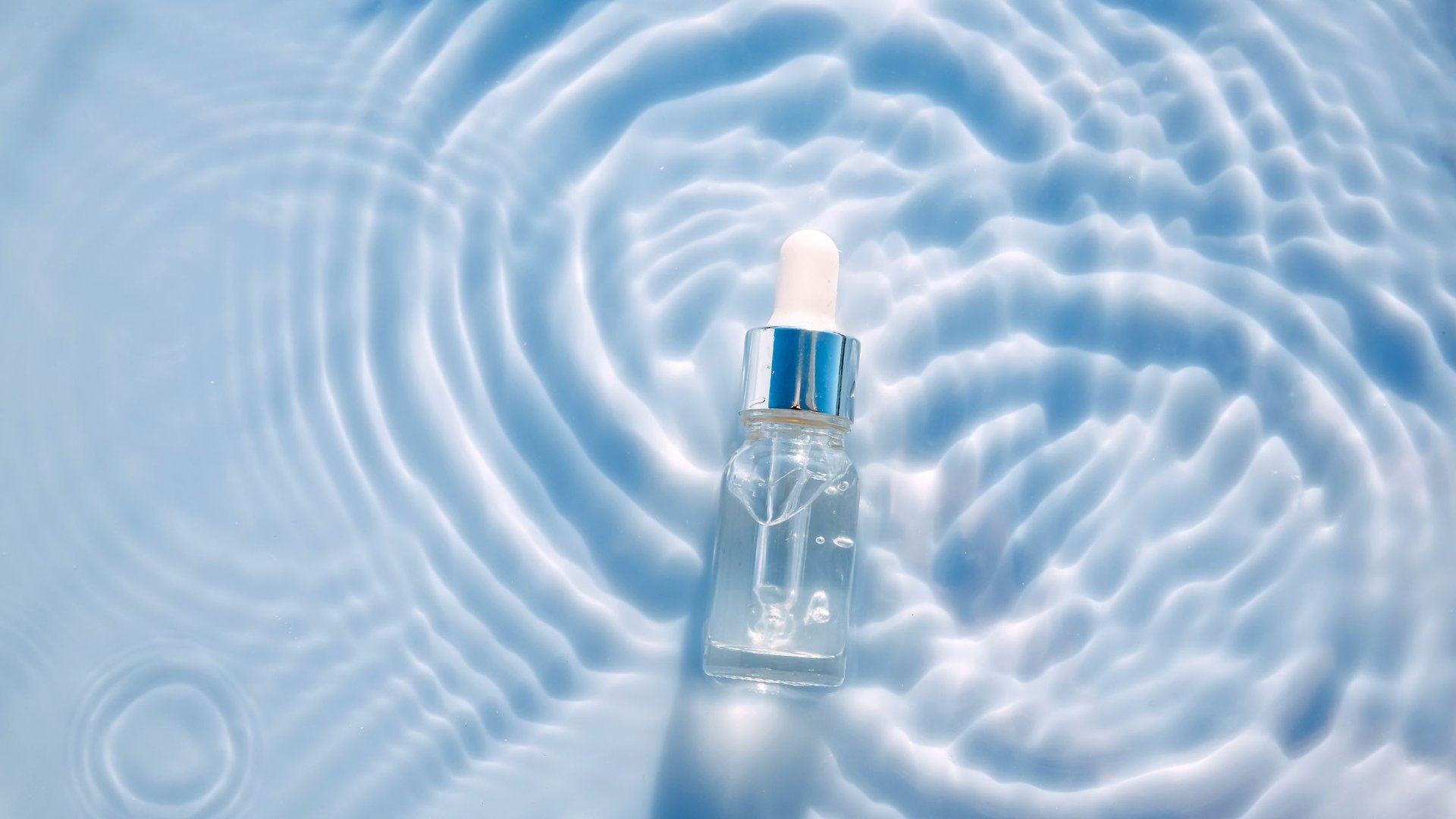
Picking Formulas for Your Skin Type
Using skincare ingredients that reduce inflammation works best when you match your product to your skin type.
Here’s a simple guide for every skin need:
Oily or acne-prone skin: Look for lightweight gels, serums, or oil-free lotions with niacinamide or green tea extract. Avoid heavy creams that can clog pores.
Dry or sensitive skin: Creams and balms with colloidal oatmeal or cica lock in moisture and offer relief. Shea butter and oat-based formulas are also good.
Combination skin: Go for oil-free moisturizers with aloe vera or mild formulations that hydrate without heaviness. Layer products if you get dry patches or uneven redness.
Rosacea-prone skin: Choose simple, fragrance-free formulas with minimal irritants. A moisturizer with niacinamide or green tea can help lessen redness and calm skin.
By focusing on texture and key calming ingredients, you’ll avoid products that annoy your skin further.
Making Inflammation-Reducing Ingredients Work for You
Want better results from your skincare ingredients that reduce inflammation? Consistency and gentle habits are key.
Here’s a quick checklist:
Use a gentle cleanser: Skip harsh scrubs. Clean skin, then apply your calming serum or moisturizer.
Apply thin to thick: Begin with lightest products (serum, gel), finish with heavier creams or balms.
Layer with sunscreen: Protect against UV, which can worsen redness and lay the groundwork for flare-ups.
Remember: more isn’t always better. Too many active products can overwhelm, even if they claim to soothe.
Stick to two or three reliable items to keep your skin calm and clear.
By reading ingredient lists, patch-testing, and picking the right formula, you set yourself up for skin that looks and feels peaceful every day.
Lifestyle Tips to Support Inflammation-Free Skin
Skincare ingredients that reduce inflammation work best when you combine them with simple lifestyle choices.
You don't have to overhaul your entire routine.
Small tweaks in how you eat, manage stress, move, and protect your skin each day work together with your favorite soothing products.
Think of these habits as the foundation that helps calming ingredients do their job and keep your complexion looking its best.


Eat to Soothe Your Skin
What you put on your skin matters, but what you put in your body can be just as important. Certain foods make it easier for skincare ingredients that reduce inflammation to work.
Fill your plate with color: Aim for plenty of fruits and vegetables. Berries, leafy greens, and carrots all deliver antioxidants that help calm the skin.
Choose healthy fats: Salmon, walnuts, and flaxseeds are all loaded with omega-3s. These fats can soothe inflammation from the inside out.
Stay hydrated: Water, herbal teas, and water-rich foods like cucumber or watermelon help your skin bounce back faster.
Skip sugar overload: Too much sugar can trigger breakouts and redness. Swap candy for nuts or fruit.
Limit processed foods: Chips, fast food, and packaged snacks often contain ingredients that stress your body and your skin.
Eating well isn’t about a restrictive diet—it’s about adding more of the good stuff so your skin can repair and protect itself better.
Stress Less for Calmer Skin
Everyday stress can show up on your face as sudden redness and sensitivity.
When you’re wound up, your body releases hormones that can fuel skin flare-ups, making soothing ingredients less effective.
Try a few easy ways to lower stress:
Make time for what you love: Reading, walking your dog, or gardening can all shift your mood and take your mind off stress.
Breathe deep: Take slow, deep breaths when you notice tension. Even two minutes helps your nervous system settle.
Move your body: Yoga, gentle stretching, or simply a walk around the block all lower stress hormones.
Get enough rest: Aim for 7-9 hours of sleep. Tired skin is more likely to get inflamed.
When stress drops, your skin’s barrier stays stronger and looks less irritated.
Stay Sun Smart Every Day
Sun exposure is a major trigger for inflammation, even on cloudy days. UV rays break down your skin’s barrier, undo the benefits of calming ingredients, and can make redness or swelling worse.
A few simple habits help:
Use sunscreen daily: Look for mineral formulas with zinc oxide or titanium dioxide. Apply every morning and reapply if you’re outside.
Wear a hat and sunglasses: These block even more UV rays and give sensitive areas like your cheeks and nose extra cover.
Shade up: Stay in the shade during peak sun (10 AM–4 PM) when possible.
By keeping sun exposure low, you help skincare ingredients that reduce inflammation work their magic without interruption.
Prioritize Gentle Movement
You don’t need to run a marathon, but moving regularly helps your skin stay healthy.
Gentle exercise increases blood flow, sending fresh oxygen and nutrients to the skin.
It also helps remove waste and keeps your glow strong.
Try:
Walking outside for 20–30 minutes most days
Light yoga or stretching
Dancing around your living room


Sweat can flush pores, but always shower off and use calming products like aloe or cica if your skin feels irritated.
Build Recovery Into Your Routine
Too much of a good thing—even the best skincare ingredients that reduce inflammation—can overwhelm your skin. Balance effort with recovery.
Take makeup-free days to let your skin rest.
Avoid harsh scrubs or over-exfoliating.
Moisturize daily and protect your skin's barrier.
By pairing smart lifestyle choices with the right skincare, you set yourself up for lasting, inflammation-free skin.
Making these small changes pays off with less redness, fewer flare-ups, and a healthy glow that speaks for itself.
Conclusion
Choosing skincare ingredients that reduce inflammation is one of the best ways to keep your skin calm, strong, and healthy.
These proven soothers—like niacinamide, aloe vera, green tea extract, cica, and colloidal oatmeal—work with your skin to quiet redness and boost healing.
Building a routine that puts these ingredients front and center helps you see steady progress and fewer flare-ups.
Pair them with gentle habits and small day-to-day changes for even better results.
Start reading ingredient labels, try something new, and make inflammation-fighting skincare part of your self-care.
Thanks for joining in—share your experience or favorite calming products below to help other women find their fresh start, too.

